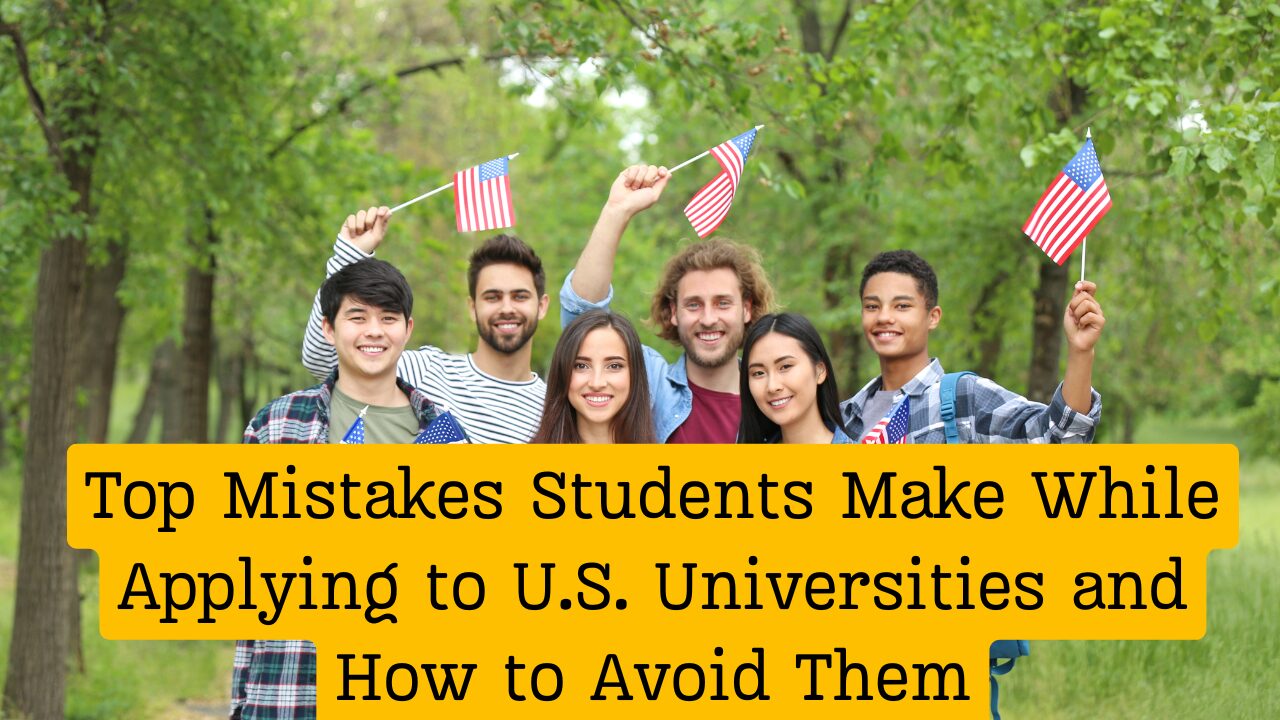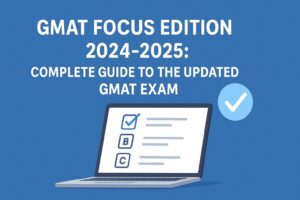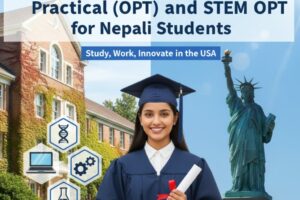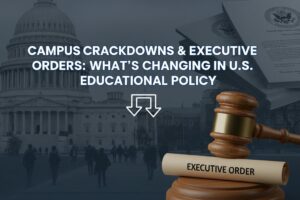Top Mistakes Students Make While Applying to U.S. Universities and How to Avoid Them

Despite rapid globalization, the United States still remains one of the leading destinations for higher education in the world offering an excellent academic structure, cutting-edge research, and global career opportunities. Still, getting admitted to a US institution, particularly as an international student, is quite engaging and it can be confusing to some. One mistake can seriously affect your application or lead to its complete rejection.
In this blog, we will discuss the common mistakes that students make while applying to US universities in addition to the invaluable tips for a successful application. No matter if you apply for a Bachelor’s or Master’s program, these tips will help you present a more powerful and flawless application.
1. Incorrect or Incomplete Information
One of the most basic but also most detrimental mistakes that can be found in a university application is error and omission in filling out the form. These could include:
- Mistakes in your name, birth date, or contact details
- Inconsistencies between your application and supporting documents.
- Not uploading required documents or leaving form fields blank.
How to avoid it:
Check each field twice before submission. Check that your name is personally identical in every aspect on your passport, academic transcripts, test scores, and applications portal. Prepare a complete checklist of all required documents from each university applied to.
2. Missing Application Deadlines
There are different deadline types that US universities follow—Early Action, Early Decision, Priority, Regular, and Rolling Admissions. Missing the deadline for any one of these could mean missing your chance to apply or receive scholarships.
How to avoid it:
Create a calendar of all application deadlines for your chosen schools. Be sure to add reminders a few weeks before each deadline so that, as it often happens, there is time to address technical glitches, delayed documents, or recommender delays.
3. Poor Selection of the University or Program
One of the biggest mistakes an applicant can make is to choose a school based on the prestige of the program or location without investigating whether the programs offered align with his/her goals. A wrong fit leads to rejections or dissatisfaction after enrollment.
How to avoid it:
Invest time researching about your faculty, curriculum, specializations, internships, and alumni outcomes. Use LinkedIn or university sites to examine, identify backgrounds and career stages of current students/graduates in the program you are interested in.
4. Weak or Generic Application Materials
Graduate students are strongly assessed based on the quality of your Statement of Purpose (SoP), Resume, and Letters of Recommendation (LoRs). It plays a significant role in the outcome. Undergraduate students must also pay careful attention to the Common App essay, supplemental essays, and activity list which form the core of your profile. A vague or an average application will not stand out.
For Graduate Applicants:
- Statement of Purpose (SoP):
Clearly communicate your academic background, strengths, career goals, and why the program is the right fit for you. It is wise to avoid generic language and tailor the content for each university. - Resume:
Focus on your academic achievements, internships or work experience, relevant projects, and leadership roles. Keep it clean and to-the-point. - Letters of Recommendation (LoRs):
Choose recommenders who know you well. Provide them with your resume and program details early so that they have enough time to prepare a strong case for your application. It is also important to note that the universities expect these letters to be submitted by the deadline— so, don’t wait until the last minute.
For Undergraduate Applicants:
- Common App Essay & Supplements:
You can present yourself in a holistic light to the admission committee in addition to your academic grades and test scores. You can help them better understand who you are and your aspirations by choosing a prompt that can allow you to express your voice, values, and growth which you have gained over the years. For supplemental topics, answer specific questions genuinely instead of giving generic answers. - Scholarship Essays:
Many universities offer need-based or merit scholarships that require additional essays. You should highlight your financial need, leadership, or academic merit in these essays depending on the type of scholarship you are applying for.
5. Not Submitting Applications on Time
Even if everything is prepared, your application will be rejected if you don’t click “submit” before the due date. Students frequently fall into this trap and believe they have finished the process after uploading all necessary documents to their account and neglect to complete it or pay the application cost. So, it necessary to submit the completed application and pay the fees.
How to avoid it:
Adopt smart strategies. Set a personal deadline to stay on track at least 3–5 days before the actual deadline. You can reach out to your recommenders to confirm that they have submitted their letters and reported all test scores to the university.
6. Mishandling Test Score Reporting
The universities generally require official score reports sent directly from testing agencies like ETS (for GRE, TOEFL) or College Board (for SAT). However, some students forget to report scores or choose the wrong school codes.
How to avoid it:
Check each university’s requirements for standardized tests. Some programs waive GRE or SAT scores; others make them optional. In order to avoid any problems, you should always send official reports early, as it can take time to receive and process the document.
7. Application Tips for an International Student
International applicants often have extra steps to follow and meet additional requirements to submit a successful application.
Key Mistakes to Avoid:
• Not meeting English proficiency requirements: The majority of US colleges want results directly from the TOEFL, IELTS, or Duolingo English Test. Make sure to confirm the policies of each university before assuming that you will be exempted due to your English-medium education.
• Confusion Regarding Waivers and Application Fees: Some institutions may eliminate fees for Early Action or Priority applications, or they may charge different fees for overseas applicants. The price of passing up such opportunities can mount.
• Delays in Credential Evaluations and Transcripts: A lot of colleges demand that transcripts be translated and/or assessed by WES. Start early because this process takes time.
Tips for a Successful US University Application
- Start early inyour research and preparation about 9–12 months before deadlines.
- Stay organized using spreadsheets or other medium to track documents, deadlines, fee payments, and submission status.
- Get help to review your SoP and essays by teachers or counselors who can help to improve and present your story in a strong fashion.
- Reach out to your desired university if you are unclear about a requirement. They are usually happy to help.
- Be authentic. Don’t lie about your achievements. People often undermine how important your genuineness can be in building a strong case.
We understand that applying to US universities as an international student can be tricky and challenging but with right guidance it can be handled effectively. Use these tips to make your application thorough, timely, and appealing, regardless of your level of education.
At Edwise Foundation, we always strive to help students get the best possible admission offer by assisting in preparing an effective application. Our team of experts work closely with each student offering personalized guidance so that you can avoid the most common mistakes, such as incomplete application documents, missing deadlines, or inaccurate information in order to help you to greatly increase your chances. We have assisted thousands of aspiring students like you with submitting a quality application and are eager to assist you realize your US education dream.



